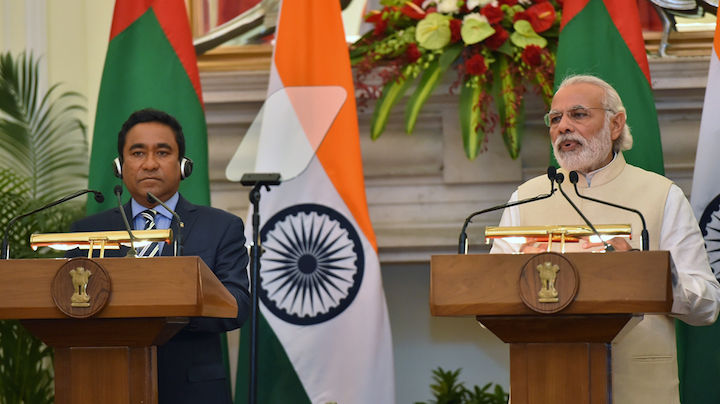Maldives seeks Indian protection from ‘unfair punitive action by CMAG’
“The reason I visited Mr Prime Minister in India today is to express my appreciation for the very steadfast leadership India has shown in protecting Maldives in the CMAG deliberations. We look at India for continued support in preventing any unfair, any punitive action by the CMAG on the Maldives,” President Yameen said today in his ongoing official visit to India.

11 Apr 2016, 09:00
The Maldives is looking to India for protection against “punitive action” from the Commonwealth Ministerial Action Group over the widely condemned imprisonment of opposition leaders, President Abdulla Yameen said today in his ongoing official visit to India.
In a joint press statement with Indian Prime Minister Narendra Modi following official talks at the Hyderabad House, Yameen said the main reason for his visit was to express gratitude for India’s role in helping the Maldives avoid action from the Commonwealth’s human rights and democracy oversight body.
“The reason I visited Mr Prime Minister in India today is to express my appreciation for the very steadfast leadership India has shown in protecting Maldives in the CMAG deliberations,” he said.
“We look at India for continued support in preventing any unfair, any punitive action by the CMAG on the Maldives. It is indeed very sad for a small country like the Maldives, trying to engage in international diplomacy and trying to learn from the governance of these institutions, while smaller countries are unfairly punished.”
Become a member
Get full access to our archive and personalise your experience.
Already a member?
Discussion
No comments yet. Be the first to share your thoughts!
No comments yet. Be the first to join the conversation!
Join the Conversation
Sign in to share your thoughts under an alias and take part in the discussion. Independent journalism thrives on open, respectful debate — your voice matters.




